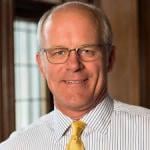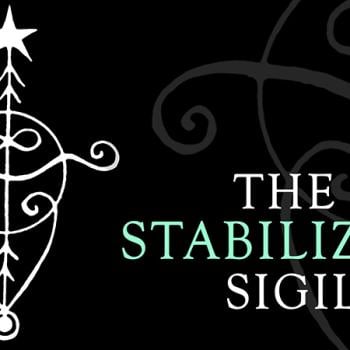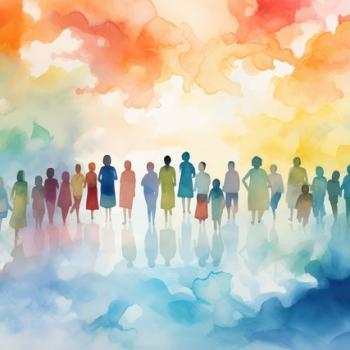I'm sure it could have. But I don't think it did, partly because of my chosen reactions but mostly because of what I was reacting to -- and what I came to realize after deep study.
Shaping a story.
I may be a bit wet behind the ears, but seven months full-time as a journalist gave me a bit of experience in recognizing and consciously articulating narratives, stories people tell that make a series of events coherent. In political crises, old political structures vanish. "The actions that are then taken," Milton Friedman said once, "depend on the ideas that are lying around." When personal crises occur, when life throws us unfamiliar data points hard and heavy, our old narratives, too, fragment, reform, and crystallize -- usually in the pattern of one of the ideas we have lying around. At such times, we form narratives whether we are trying to or not. I needed a narrative.
My parents, accepting but opposing strongly my conversion, offered me one such narrative, sending me anti/post-Mormon literature. The critiques contained were constructed along historical and secular humanist lines. They delve into any of the above events and say something like the following: "I used to be a believing Mormon. Then I learned the truth about Mormon history. I saw how the lens of faith had warped my worldview, clouding my vision of what should have been in front of my face. So I decided to seek truth by leaving the Church, even though it was painful."
For example, in Suddenly Strangers: Surrendering Gods and Heroes, Chris Morin, after detailing at length with his personal investigation into Mormon history and subsequent departure from the Church, writes: "Scientific theories, which I had previously refused to consider, suddenly became credible, thus completing the demolition of my view of eternity. . . . Using faith and hope to determine truth failed me miserably in the past. Now I feel compelled, by experience, to base my beliefs on evidence and reason. . . . Earlier in our lives, [brother Brad and I] had felt compelled to justify our religious beliefs when we encountered a contradiction. Now we hope to let encounters with truth reshape our views, rather than try to force the facts to fit our faith."
The Morins' narrative is filled with anguish. Sadness over their lost faith, over relatives' misunderstanding, knee-jerk anger, the severing of family ties, accusations that their estrangement is driven by sin.
This type of narrative -- perfect illustrations of Friedman's thesis -- was lying on the floor, ready for me to pick up and make my own. I guess I didn't realize what I got myself into. Eek! Let me get out before I get in too deep. I'm glad this narrative wasn't the only one. Crucially, through the confusion and sadness, I knew I had still tasted sweet fruit. Most certainly, I wanted it all to make sense. Family home evenings were a refuge from the constant beat of school. When I went to the temple to do baptisms for the dead, I saw my fellow ward members looking like angels.
And yet, I knew I needed everything to fit together. While all this was going on, I emailed Church friends saying that there was a "whole host of considerations that I've temporarily set aside because of my experiences" and noted that "eventually, my faith will have to encompass and comprehend everything I know about the world, not just what I learn in church."
And so learning about historical issues, including what was on offer in Dialogue, was just creating more problems. But the way I found out of this swamp turned out to be the way in: a thoughtful examination of what Mormonism is. The narrative I came to might be called "informed and faithful." It sounds something like this, plucked from the website of amateur apologist Jeff Lindsay: "I recognize that the Church has plenty of those pesky mortals in it, even running much of it, and that means errors and problems and embarrassments from time to time. OK, I can't give my full endorsement to every historical event and statement and practice over the years, neither in modern Church history or the Biblical record, for that matter. But I do think we have some amazing things that the world should know about, especially The Book of Mormon: Another Testament of Jesus Christ. Got one?"
This approach seems to consist of two basic propositions: (1) Mormonism has historical flaws and embarrassments, but (2) it really does have the truth and goodness it claims. For me, coming to this type of perspective started with reading the historical literature -- the apologetics on both sides. Still, while apologetic arguments giving context and explaining were helpful, for me they only got halfway. They seem largely a defensive tactic. Rarely in themselves do they show strength. I found chiasmus, Nahom, and explanations of the Utah War helpful, but they still had to contend against divining rods, polygamy, and Mountain Meadows.




